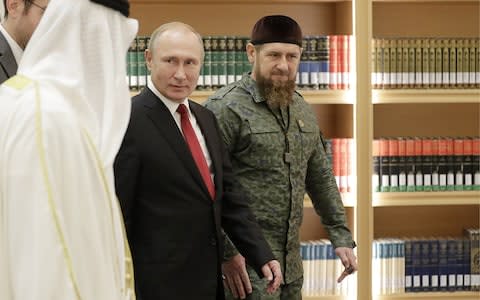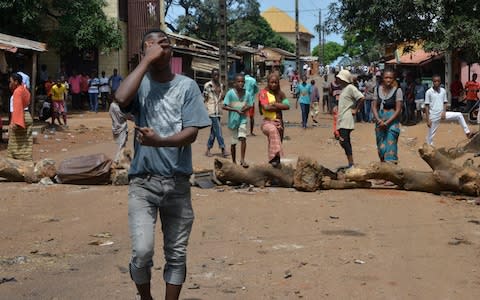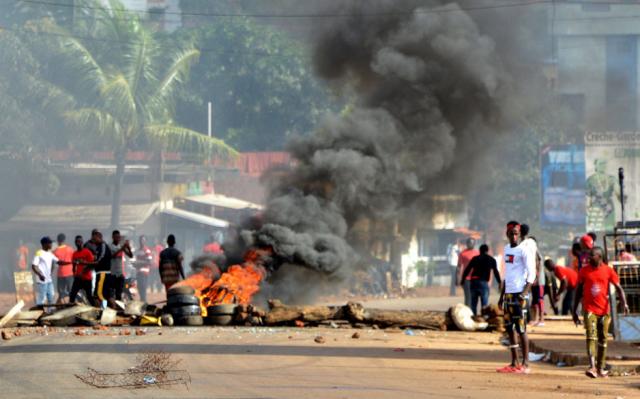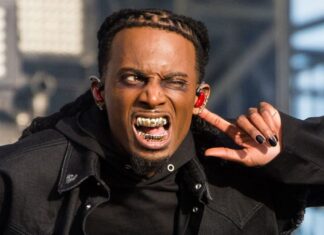When police shot dead nine pro-democracy protesters in Guinea this week, Western embassies quietly shared their misgivings with the country’s president, Alpha Conde. International human rights groups were more unequivocal.
François Patuel of Amnesty International denounced “a shameful attempt by Guinean authorities to stifle dissent by any means necessary”. But one major power seemed unperturbed.
Mr Conde’s ruthless response to protests against his apparent efforts to cling to power not only suited Russia, it seems probable that they were tacitly endorsed by the Kremlin.
On Wednesday, Vladimir Putin, Russia’s president, will host leaders from 35 African states at a summit in the Black Sea resort of Sochi as he seeks to consolidate Moscow’s growing influence in the world’s poorest continent.
Russia may lack the heft of its rivals, able neither to match the West in aid nor China in terms of infrastructure financing, but it does have other resources with which to woo African leaders, particularly those of a more authoritarian bent.

Not only has Russia sold arms to 18 African states over the past decade, its mercenaries have fanned out across the continent to offer protection and other services to receptive governments.
“Political technologists” have also allegedly mounted disinformation campaigns in several recent African elections. In return, Russia has won concessions to mine minerals and secured backing from African delegates at the United Nations.
Russia’s blossoming relationship with Mr Conde is an example of just how successful its muscular Africa policy can be. Guineans are meant to elect a new president next year. Having served two five-year terms, Mr Conde is constitutionally barred from standing again, but has made it increasingly clear that he is not yet ready to surrender the presidency.

To do so, Guinea will need an entirely new constitution, plans for which have already been advanced by Mr Conde’s ruling party.
The opposition has accused the president of seeking to ease its path by stacking the constitutional court, taming the electoral commission and delaying parliamentary elections by more than a year to protect his narrow legislative majority. Russia has openly given its cover to Mr Conde’s efforts.
In an extraordinary intervention, brazen even by the Kremlin’s standards, Russia’s ambassador, made a televised address on New Year’s Eve backing a constitutional change.
Alexander Bregadze told Guineans they would be mad to allow the “legendary” Mr Conde to step down, saying: “Do you know many countries in Africa that do better? Do you know many presidents in Africa who do better?” “It’s constitutions that adapt to reality, not reality that adapts to constitutions.”
Such naked campaigning from a diplomat is unusual. But Russia has a vital relationship to nurture. Guinea holds the world’s largest reserves of bauxite, the ore that is refined and smelted to produce aluminium.
The Russian firm Rusal, the world’s largest aluminium producer outside Russia, sources more than a quarter of its bauxite from Guinea. Guinea’s importance to Russia grew immeasurably last year after the United States imposed sanctions on Rusal and its co-owner, the oligarch and close Putin ally Oleg Deripaska. Sanctions have since been lifted on Rusal but not on Mr Deripaska.

The significance of the relationship was underscored when Mr Bregadze stepped down as ambassador in May to head Rusal’s operations in Guinea. Other Russian firms also have mineral interests in Guinea.
Tellingly, Yevgeny Prigozhin, a shadowy Kremlin associate linked to mercenary and mining outfits in Africa, is understood to have set up operations in Guinea.
Mr Putin has wooed President Conde, too, twice inviting him to Moscow for talks. Guinea’s opposition has denounced what it says is Russian interference. Protesters last week made their feelings clear by blockading a Rusal-owned railway line used to transport bauxite. Their anger is likely to achieve little.
Emboldened by Russian backing, Mr Conde has only cracked down harder. Last week, nine senior opposition figures were charged with insurrection. They face five years in prison. Given everything it has invested in Mr Conde, Russia cannot risk the opposition coming to power.
When Mr Putin meets his guest in Sochi, he is likely to encourage him to persist with repression.











